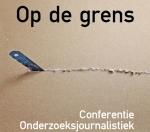GENT - The conference of the Dutch-Belgian Investigative Journalists’ Association VVOJ is to take place on Friday November 19 and Saturday November 2010 in the Belgian town of Ghent. This year’s theme is Journalism on the Edge.
GENT - The conference of the Dutch-Belgian Investigative Journalists’ Association VVOJ is to take place on Friday November 19 and Saturday November 2010 in the Belgian town of Ghent. This year’s theme is Journalism on the Edge.
The lectures, trainings and workshops are to focus on the latest developments in this area. Other topics to be discussed are research methods, publication options and business models.
N.B.Dutch and English are the main languages spoken at the conference. Many of our lectures, trainings and workshops are in English. The program, that will be published soon, will indicate which sessions are in Dutch and which are in English..
Registration has begun!
Go to the registation form
Expenses
Members pay € 195,-. Non-members € 390,-. Students (who are or will soon be members of the VVOJ) pay just € 99,- (excluding the Friday night dinner).
Group fees
If editorial boards want to attend the conference with a minimum of 5 participants, please ask for our special group rate!
Cancellation
Cancellation is possible at for free up to six week ahead of the conference. Between six to two weeks, a 50 percent cancellation fee is charged. In the last two weeks leading up to the conference, cancelling is no longer possible, though you may request our secretariat to have someone else take your place (please send your request to secretariaat [at] vvoj.nl or call +31-30–2193011). A cancellation fee of 25 euros in administrative fees will be charged.
Program
The full program will soon be published, and in the meantime we will give you a quick impression:
New methods and computer skills
- Social media and their usability for investigative journalism. How useful is Twitter? How do you use it? How do you analyze other people’s networks and retrieve from it what you need for your stories?
- Textmining, another way to search texts. Learn the skill using text compilations such as Parlando that are usually not easy to screen.
- Visualisation of investigative stories made easy and affordable
- From web to Excel: how to let statistics stream automatically into your stories? How can you use statistics in your work?
- The hidden corners of international databases we have yet to uncoverCompiling surveys while maintaining quality
Workshops, panel sessions, keynote speakers: looking for the edge of our profession and new horizons
- The journalists and its research partners. Nowadays, much research previously done by investigative journalists, is done by NGO’s, universities, think tanks and (financial) research bureaus. Why is this the case? How can we become each other’s partners and what can we learn from each other?
- Establish your financial limit and retain your independence vis-a-vis your comissioner, your sponsor, a fund or someone else.
- The journalist and the law: what legal complications and obstacles does a journalist run into during his work? How do you draft a rock-solid contract? What about copyrights? How do you settle your accountability as a journalist? Legal experts will shed more light on these issues.
- From public to collegue: how to involve your audience in your investigation? What do we do with tips and advice? Is ‘crowdsourcing’ symbolic for decreasing public involvement? Should your audience help your research? Learn from the latest initiatives, national and international.
